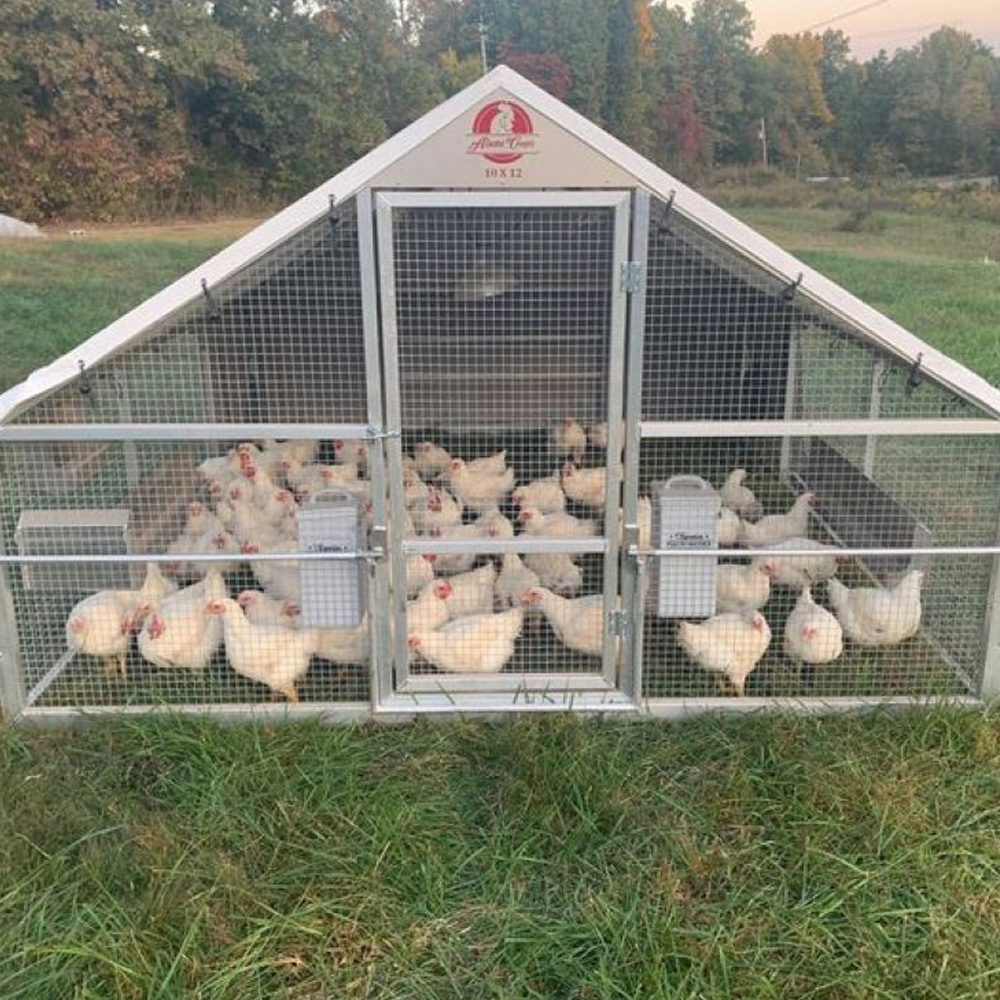

You are probably saying, “why are we talking about butchering already, I just got my chicks. They are barely a few weeks old!”
Well, now is the time to start making sure that when harvest comes, you are well prepared for it to be an enjoyable as possible. One of the biggest reasons people don’t enjoy poultry processing is because of inadequate preparation. An ounce of prevention is not just worth a pound of cure, it is worth MANY pounds of quality poultry!
So lets look at a few of the most common pain points…
Many, sharp knives
Here is a simple rule, you can’t have too many sharp knives on processing day. I would rather have a handful that end up unused, then have to deal with a dull knife (or trying to sharpen one!) during harvest.
Prep easy to forget things
There are many small details that are easy to overlook and do in the days before butchering, but that add a lot of time on the backside. For instance, do you have wood chips or sawdust or similar material to catch blood under your kill setup? Do you have a place prepped and ready for composting all the inedible parts and pieces that are leftover? What about the piles of feathers from plucking? (if you want some quick checklists to help you improve your butchering, you can get our short Butchering Guide here, exclusively from Roots and Harvest)
Review the process
We will, especially for spring, do a sit down meeting, and review the process to make sure our whole family is mentally prepared for who will do what when and how on butchering day. If need be, we will watch a video or two to go over any areas someone may need a short refresher.
Inspected and tested equipment
I used to travel about three hours to help some friends butcher multiple hundreds of chickens starting at around six AM in the morning. One year, they had a completely new setup (they were increasing their poultry production by almost ten fold that season!). When I arrived, I noticed there was a bit of apprehension in the air… the new setup had sprung a leak. 1200 gallons of hot water were slowly pouring out of the scalder setup. Needless to say, it was a long day and not something I or they ever wanted to repeat. While no one likes to think about it, your equipment that worked perfectly fine last season or a few months ago may not work tomorrow morning! And that is the last moment you want to find out that you have such a problem.
So a few days before butchering, make sure to inspect and test all your equipment. That is the time to notice a missing screw, nut, bolt, or washer, a frayed cord, a replaceable fuse, and more. You want to be sure your testing gives you enough time to repair or replace whatever is the problem so that your butchering day isn’t a bust. An ounce of prevention is worth a pound of cure, especially when it comes to collecting your own meat, so make sure you take the time to set you and your family up for success this butchering season.